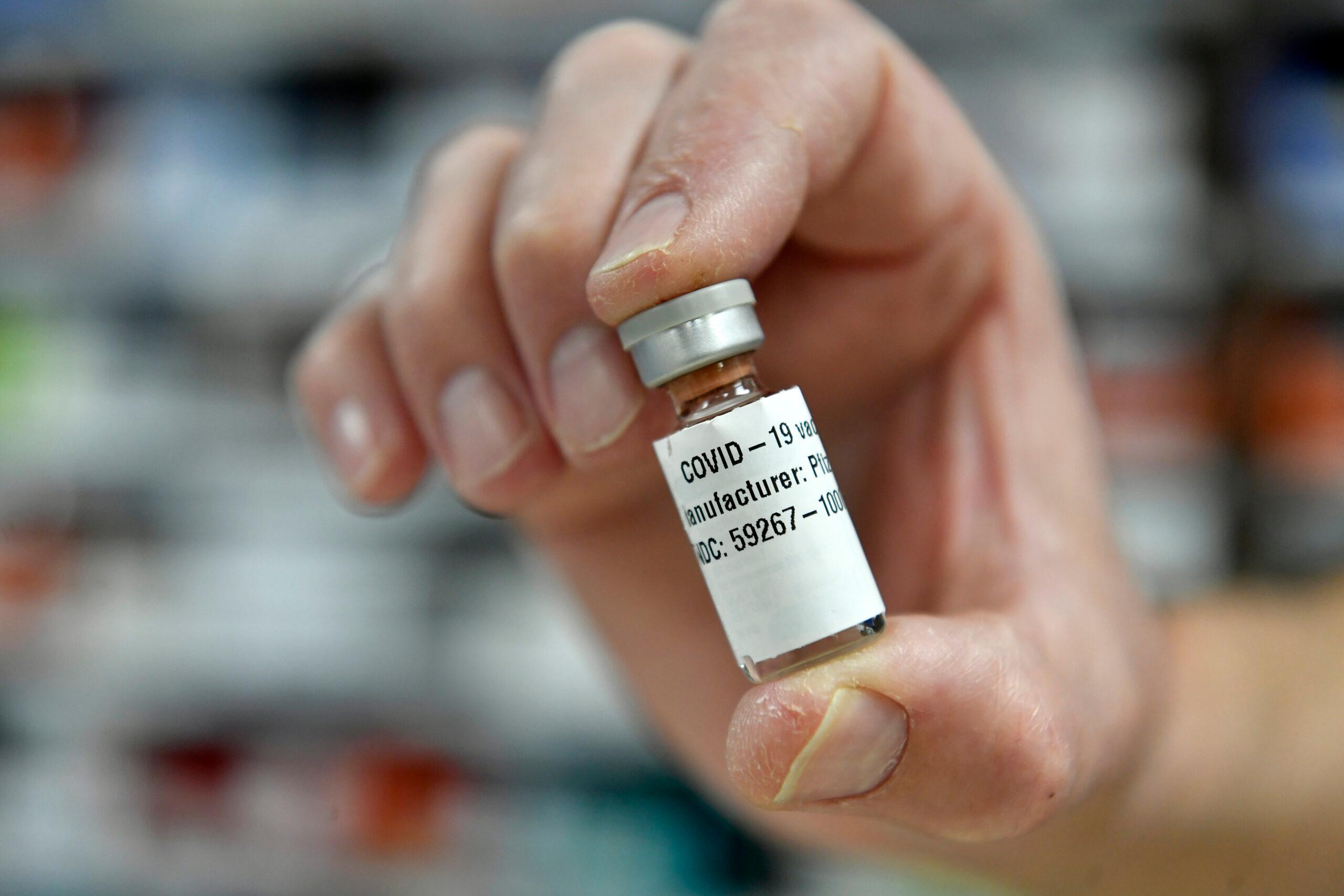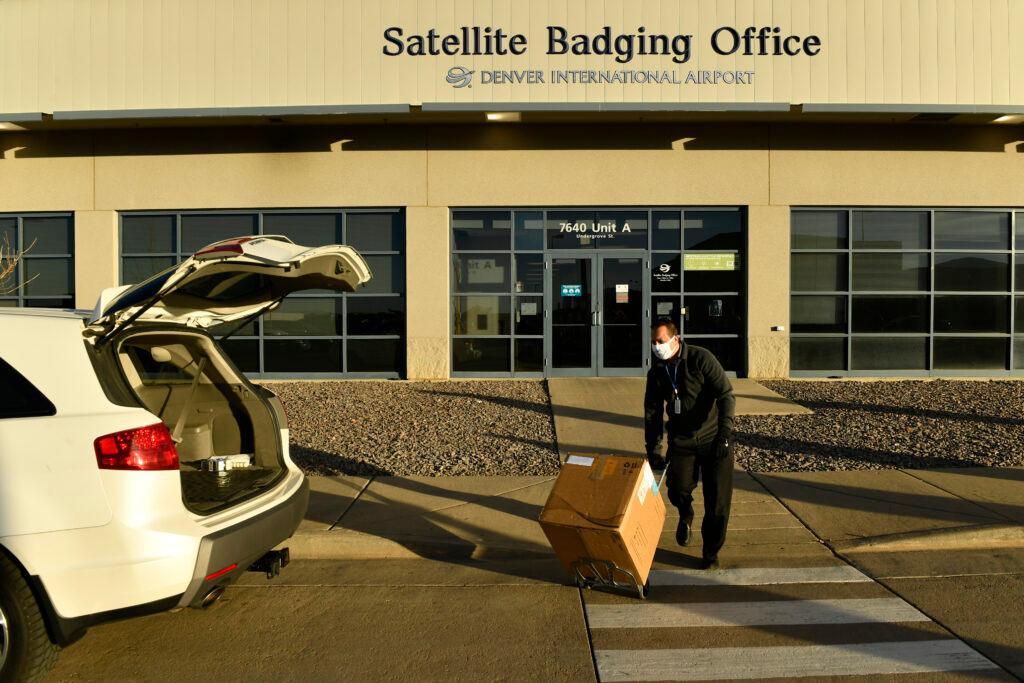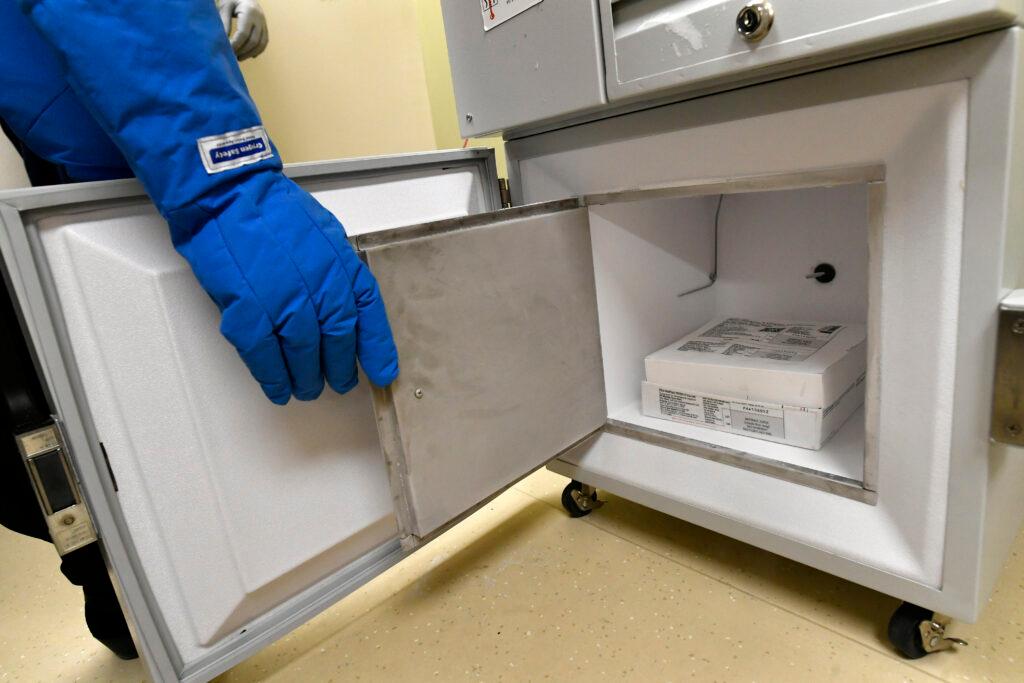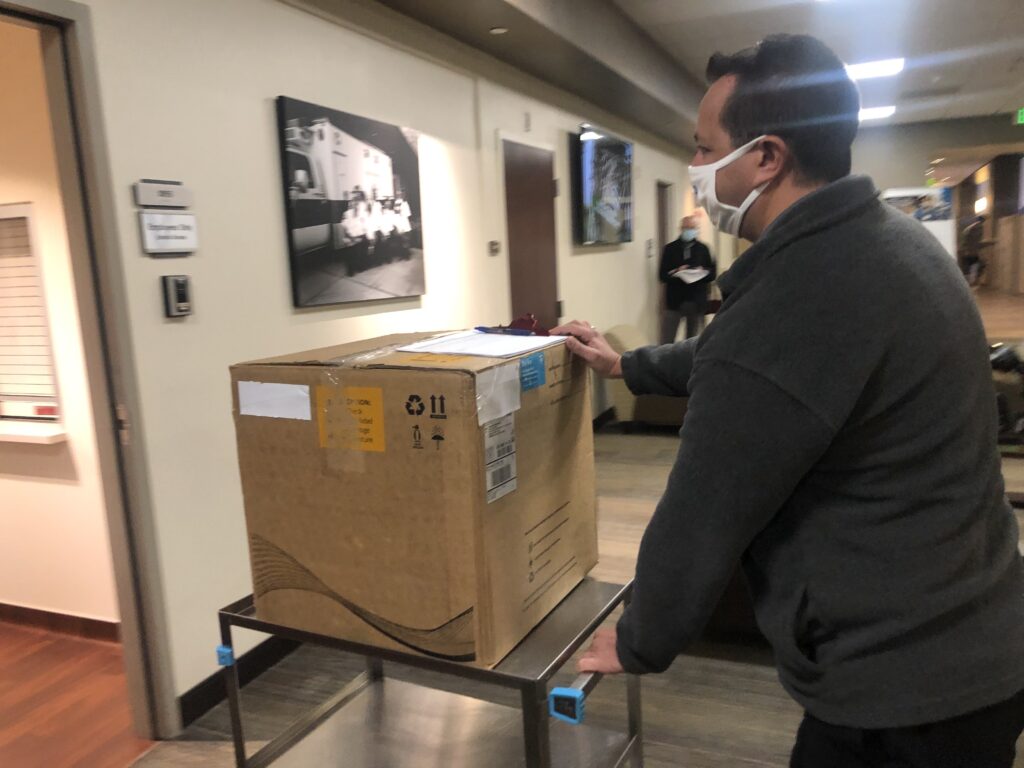
When Colorado receives its first shipment of the COVID-19 vaccine next week, state officials don’t want any chance of something going wrong. So they decided to give vaccine distribution a test run first.
The Pfizer vaccine Colorado will receive must be stored between minus 60 and minus 86 degrees Celsius, a temperature range that requires an ultra-cold specialty freezer. Once in a regular refrigerator, it must be used within 5 days. Without careful coordination, doses could expire and go to waste.
On Tuesday the state tested its distribution protocols by bringing a mock dose of the Pfizer vaccine from Denver International Airport to Vail Health Hospital, one of eight regional hubs the state has designated to receive the vaccine in the coming days. Each of those locations already has an ultra-cold freezer.
“The purpose [of the trial] is to find any areas of improvement before we are moving real items in the middle of a real incident,” said Micki Trost, with the State’s emergency operations center. “We definitely want to see if there’s any areas of efficiency, make sure the system and the plan in place works.”

The trial began with a courier at DIA carefully putting a cardboard box filled with dry ice into the back of his small white vehicle and embarking on the two-hour drive to Vail. Once the actual vaccine arrives, Pfizer will contract with USPS and FedEx to send it directly to the hub locations, from which the state will use couriers to deliver it locally.
“Once it's received by those hubs, it's really our responsibility to break them down into smaller quantities and distribute them to the local level,” said the director of the state’s vaccine task force, Brig. Gen. Scott Sherman of the Colorado National Guard.
Sherman said the biggest distribution challenge will be getting limited shipments of the vaccine to smaller hospitals, especially in remote areas of the state, in the right quantity and timeframe.

Colorado has also purchased 10 additional ultra-cold freezers that will be deployed as needed across the state to increase the capacity to store the vaccine. Sherman said Colorado’s initial shipment will contain 46,800 doses.
“It's amazing, to be completely truthful, just being part of the teams that have to deliver the vaccine to the final destination,” said courier Leo Gomez, one of the owners of Swift Courier Services, based in Denver. “We have been doing all the collection of the COVID tests at different facilities all around Colorado. So that's definitely part of the solution, now getting the vaccines back to them.”
Gomez’s company handles medicine and medical equipment and he said delivering the COVID-19 vaccine will be similar in many ways to transporting human organs, which also need to be moved quickly and stored at a certain temperature.
He also sees a parallel in importance; “having to deliver the vaccine that everybody's looking for is definitely a high-value item right now.”

Officials at Vail Health said they were thankful help is on the way.
“The speed with which they've done it is quite impressive,” said Jessica Peterson, the inpatient pharmacy manager at Vail Health. “I'm really looking forward to this being the beginning of a downward trend.”
The state’s mountain communities became the epicenter of the virus back in March. Colorado’s first confirmed coronavirus case was recorded in Summit County — a patient from California who had skied at Vail and Keystone. Within a few weeks, Eagle County, where Vail is located, had the highest infection rate per capita in the state, with 168 cases per 100,000 people.
The hospital currently has two COVID-19 patients receiving inpatient treatment. Peterson expects to receive her first dose of the vaccine in the next few weeks after the ICU, emergency room staff and those most likely to be in contact with COVID-19 patients receive it. It then requires a second shot three weeks later.
“I think that it's been thoroughly tested. But I did go through and read a lot of the data myself.”
Despite the optimism of those involved in the trial run, Will Cook, the CEO and President of Vail Health, warned it’s far too soon for people to get complacent.
“While we're all excited about the potential that the vaccines bring, we have to continue to remain vigilant.” He added, “We still are in the middle of dealing with a pandemic.”









